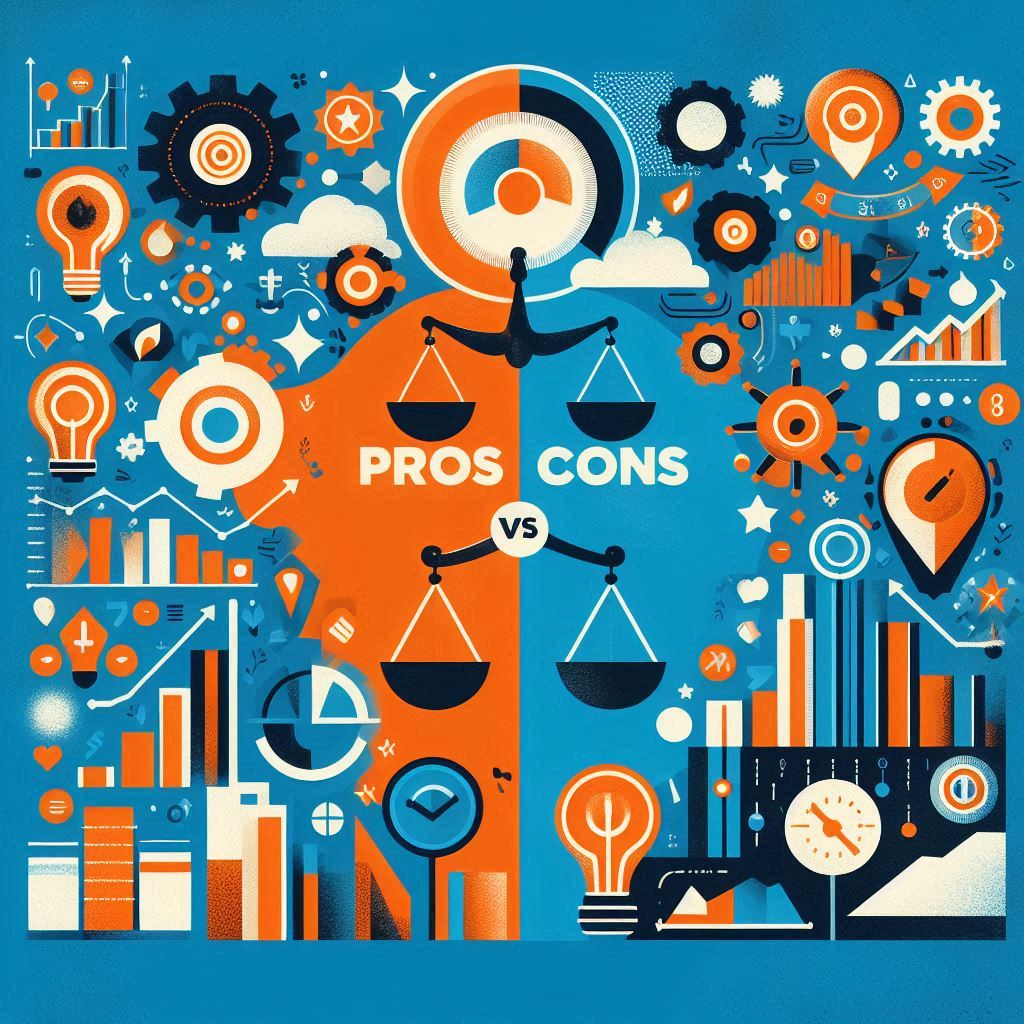DIY vs Agency vs In-House: The Honest Truth About Digital Marketing
You’re staring at your to-do list again. “Update website,” “post on Instagram,” “fix Google listing,” “figure out why nobody’s finding us online.” Sound familiar?
Every small business owner faces this moment: Do I tackle digital marketing myself, hire someone full-time, or work with an agency? It’s like choosing between learning to fix your own boiler, hiring a live-in plumber, or calling the experts when you need them.
Let’s break down the real costs, benefits, and hidden truths about each option, because nobody has time for marketing advice that sounds good in theory but falls apart in practice.
The DIY Route: When Going Solo Makes Sense (And When It Doesn’t)
Picture this: It’s 2am, you’re hunched over your laptop watching a YouTube video titled “Instagram Algorithm Secrets REVEALED!” for the third time, and you’ve got that familiar knot in your stomach. You know, the one that appears when you realise you’ve spent another evening trying to crack the digital marketing code instead of actually running your business.

Here’s the uncomfortable truth about DIY digital marketing, it can work, but only if you’re brutally honest about what it actually requires. We’re talking about dedicating 10-15 hours per week consistently, not just when you “find time.” Most business owners think they can squeeze digital marketing into those mythical spare moments between serving customers and keeping the lights on. Those spare moments? They don’t exist.
DIY makes sense if you have a genuinely tight budget (under £500 monthly for everything), your business needs are refreshingly simple, and (this bit’s crucial) you actually enjoy learning about marketing. Not just tolerating it, not just “it needs doing,” but genuinely finding it interesting enough to stick with it when the going gets tough.
The Hidden Costs That Nobody Warns You About
Let’s talk about the learning curve that every “easy marketing tips” blog conveniently glosses over. To get genuinely competent (not excellent, just competent) at digital marketing, you’re looking at around 75-135 hours of focused learning. That’s nearly a month of full-time work before you even start implementing anything properly.
Think about what that time is actually worth. If you charge £50 per hour for your services (and you should probably be charging more), that’s £3,750-£6,750 in opportunity cost before you’ve even posted your first strategic Instagram story.
Then there are the disasters. We’ve seen business owners accidentally break their websites during “simple” updates, spend three months posting inconsistently before giving up entirely, and target completely incorrect keywords for half a year. One client came to us after spending £800 on Facebook ads that didn’t generate a single enquiry. The targeting was so off, they were advertising wedding photography services to teenagers in Scotland. They’re based in Kent and specialise in corporate headshots.
The most painful cost? While you’re watching tutorials about Instagram algorithms at 11pm, your competitors who’ve outsourced their marketing are sleeping peacefully, knowing their digital presence is being handled by people who actually know what they’re doing.
If you’re absolutely determined to go the DIY route despite everything I’ve just said, at least give yourself a fighting chance. Start with one platform and actually master it before even thinking about adding others. Use scheduling tools religiously, Buffer, Hootsuite, or Later will become your best friends. Track everything from day one, even if the numbers look like hieroglyphics right now. Set strict time boundaries (two hours maximum per day), and for the love of all that’s holy, accept “good enough” instead of chasing perfectionism.
Hiring In-House: The Full-Time Marketing Dream (Or Nightmare?)
There’s something seductive about the idea of having your own marketing person. Someone who understands your business inside out, who’s available whenever you need them, who becomes the expert on your brand. It’s the business equivalent of having a live-in chef, sounds brilliant in theory.
The reality? In-house marketing only makes financial sense if you’re generating over £500k annually, need daily content creation and management, run complex multi-platform strategies that require constant oversight, and have genuine long-term marketing needs rather than project-based requirements. If you’re not ticking all these boxes religiously, the maths simply doesn’t work in your favour.
The Financial Reality Nobody Mentions
Here’s where things get uncomfortable. A junior marketing executive will cost you £25-35k plus benefits and training. Someone with actual experience? You’re looking at £35-50k plus benefits and ongoing education costs. Want a senior digital strategist who knows what they’re doing? £45-60k plus benefits, tools, and software subscriptions.
But that’s just the salary. Let’s talk about the hidden expenses that somehow never make it into the job costing calculations. Marketing software subscriptions will run you £200-500 monthly. Training and certification courses add another £2-5k annually because digital marketing changes faster than fashion trends. Conference attendance and learning opportunities can easily hit £3-8k per year. Design software and premium tools tack on another £100-300 monthly.
Then there’s the skills gap problem that makes hiring managers want to hide under their desks. You need someone who’s simultaneously a web developer, graphic designer, copywriter, data analyst, social media expert, paid advertising specialist, and strategic thinker. That person doesn’t exist, or if they do, they want £80k+ and probably prefer working for companies with beer on tap and ping pong tables.
The Management Overhead That Blindsides Business Owners
Most business owners drastically underestimate how much time managing a marketing person actually takes. You’ll need to provide daily supervision and guidance, especially during the first six months. Performance management and goal setting become your responsibility. You’ll need to stay current with digital marketing changes just to guide them effectively. And then there’s the delightful risk of them leaving after eighteen months, taking all your marketing knowledge and client relationships with them.
We’ve watched business owners spend more time managing their marketing hire than they would have spent just learning to do it themselves. It’s like hiring someone to cook for you, then spending three hours a day teaching them how to use your oven.

Working with an Agency: Why We Exist (And When We Don’t)
Here’s the uncomfortable truth about why agencies like ours exist: digital marketing has become stupidly complex. It’s like trying to be your own accountant, lawyer, and doctor, technically possible, but probably not your wisest strategic move.
Five years ago, you could get away with a decent website and posting occasionally on Facebook. Today? You need to understand search algorithms, social media algorithms, email deliverability rates, conversion tracking, customer journey mapping, and about seventeen different types of analytics. Meanwhile, all these platforms change their rules every few months just to keep things interesting.
This is exactly why agencies developed. Not because we’re trying to mystify simple processes (though some agencies definitely do that), but because effective digital marketing now requires a genuinely unreasonable amount of specialised knowledge.
What You Actually Get with a Good Agency
Instead of one person desperately trying to be good at everything, you get a team of specialists who are each excellent at their specific thing. While your in-house hire is googling “how to find location-specific website data,” an agency will have someone who’s been doing analytics for seven years and can solve it in fifteen minutes.
You also get access to systems that have been tested and refined across hundreds of different businesses. When we recommend a strategy, it’s not because it sounds good in theory, it’s because we’ve seen it work repeatedly across diverse industries. We’ve made the expensive mistakes on other people’s budgets (with their permission, obviously) and learned from them.
Perhaps most valuably, you get an objective perspective. When you’re deep in your business, it’s hard to see why your website navigation confuses visitors or why your social media content isn’t resonating. We come in with fresh eyes and no emotional attachment to strategies that aren’t working.
The Economics That Actually Make Sense
Let’s do some proper maths. A comprehensive agency package typically runs £1,500 monthly and includes strategic planning, content creation across multiple platforms, social media management, SEO optimisation, and performance reporting. Try getting equivalent in-house capability and you’re looking at £60k+ annually.
More importantly, agencies can scale up or down based on your business needs. Busy period coming up? We can ramp up support. Quiet month? Scale back without HR headaches. Need access to senior-level strategy for a specific project? It’s included in your package rather than requiring a separate £150-per-hour consultant.
When Agencies Don’t Work (The Honest Bit)
Let’s be brutally honest about when agencies aren’t the right fit, because nobody benefits from mismatched expectations. Agencies don’t work if you need daily hands-on presence with multiple meetings per day. We’re not right if you operate in a highly specialised niche requiring deep industry knowledge that takes months to acquire.
The best agency relationships involve collaboration, trust, and mutual respect for expertise.
The Honest Comparison Chart

| Aspect | DIY | In-House | Agency |
| Initial Cost | Low (time only) | High (recruitment + setup) | Medium (onboarding) |
| Monthly Cost | Your time value | £3k-6k+ | £500-3.5k |
| Expertise Level | Learning curve | Variable | Proven track record |
| Time to Results | 6-12 months | 3-6 months | 1-3 months |
| Scalability | Very limited | Expensive to scale | Highly flexible |
| Risk Level | High (mistakes costly) | Medium (hiring risk) | Low (proven systems) |
| Control Level | Complete | High | Collaborative |
| Learning Curve | Steep and ongoing | Management overhead | Minimal |
Making the Right Choice for Your Business
The truth is, there’s no universally “correct” answer here, and anyone who tells you otherwise is probably trying to sell you something. The best choice depends entirely on your budget, timeline, current expertise, and how much you genuinely value your own time.
Choose DIY if your budget is genuinely tight (under £250 monthly for everything), you actually enjoy learning about marketing rather than just tolerating it, your business needs are refreshingly simple, and you’re just starting out and testing market demand. There’s no shame in the DIY route when it makes financial sense.
Go the in-house route if your revenue consistently exceeds £500k annually, you need someone managing multiple complex campaigns daily, you have budget for £50k+ annually plus tools and training costs, and you want marketing deeply integrated with your day-to-day operations. For the right businesses at the right stage, in-house can be transformational.
Consider an agency if you want proven results without the months-long learning curve, your time is genuinely better spent on core business activities, you need diverse expertise and proven systems, you want predictable costs with scalable solutions, or you’ve already tried DIY and discovered it’s slowly driving you insane.
The decision ultimately comes down to this: what’s the best use of your time and energy? If you’re a brilliant plumber, should you spend 15 hours per week learning Instagram marketing, or should you focus on being the best plumber in Kent and Sussex while someone else handles the digital side?
The Choice That’s Right for You
At Moncy, we work with businesses who’ve tried all three approaches. Some come to us after burning out on DIY, exhausted from spending evenings and weekends trying to crack the digital marketing code. Others arrive after realising their in-house hire isn’t delivering the results they expected, despite being lovely people who try really hard.

The common thread? They all wish they’d made the switch to professional help sooner. Not because DIY or in-house can’t work, but because they’d rather spend their time and energy on what they do best—serving their customers brilliantly.
If you’re reading this at 11pm on a Sunday, wondering whether you should be learning about Facebook advertising instead of preparing for tomorrow’s client meetings, maybe it’s time for an honest conversation about what’s actually the best use of your expertise.
Ready to explore what professional digital marketing could do for your business? Book a free strategy session where we’ll audit your current approach honestly, identify what’s working and what isn’t, show you exactly what an agency partnership could achieve, and provide valuable insights regardless of your final decision.
No sales pressure, just honest advice about what’s genuinely best for your business right now.
Still not sure which route makes sense for your specific situation? Email us your details at hello@moncy.co.uk and we’ll give you candid advice about whether DIY, in-house, or agency makes most sense for where your business is today.

